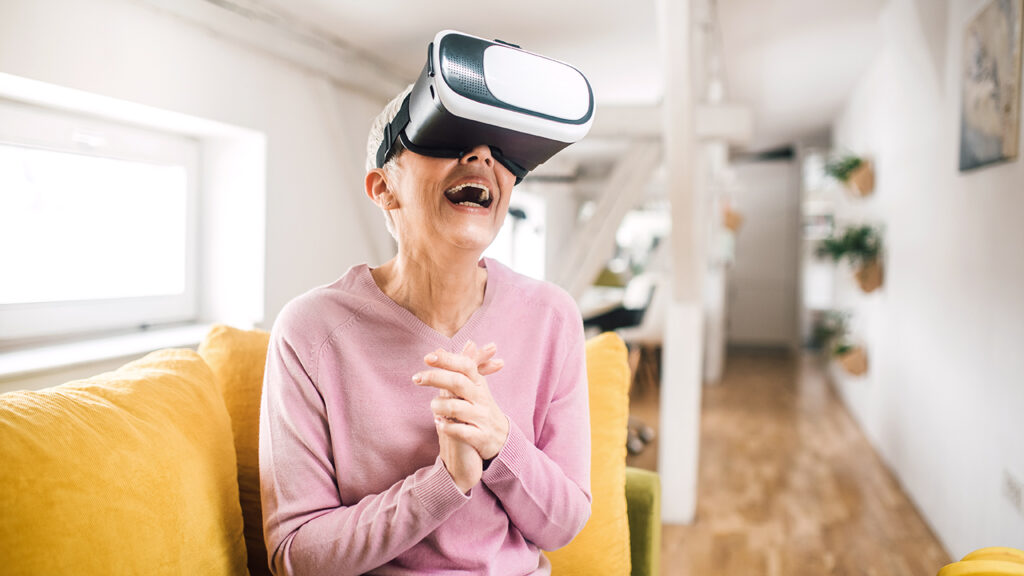
Many senior living operators have adopted virtual reality tools for their residents, allowing them to go on “world tours” or take part in immersive trivia games.
VR tools, however, increasingly are being used for purposes beyond mere entertainment.
One promising example is using VR as a therapy tool for people with cancer, a new meta-study published in BMJ Supportive & Palliative Care shows.
The researchers looked at 31 existing studies, 16 of which involved people with cancer. They concluded that, although the data were somewhat qualitative, the overall picture showed that VR provided a valuable coping mechanism and emotional intervention to counterbalance symptoms of their disease or the side effects from medical treatment.
“The decrease in the physical and practical costs of VR technologies has generated a growing interest in their application to improve patient quality of life in health settings,” the researchers stated.
Rather than playing games or touring Rome, the VR experiences in the studies were geared toward more therapeutic purposes, such as a nature walk coupled with mindfulness meditation. The targeted nature of the VR experience, however, was not as significant as the mere fact of using the VR system itself, the researchers said.
Perhaps because of this more broad, non-specific benefit, the meta-analysis also suggested that VR was a valuable therapy tool for those with cardiovascular and kidney disease, among other conditions.
Similar research efforts have attempted to produce more quantitative evidence that VR can make a difference in the lives of senior living residents.
In one recent study that took place at Bentley Village in Naples, FL, assisted living residents who used the Rendever VR platform reported a 67% improvement in their depression, and all participants said they’d become more social after eight weeks. The sample size for that finding also was small, however, at less than 10 participants. At least one company, Boston-based XR-Health, has received a US patent for VR tools that serve as actual treatment for certain conditions, such as autism or chronic pain, rather than merely ancillary emotion support.


